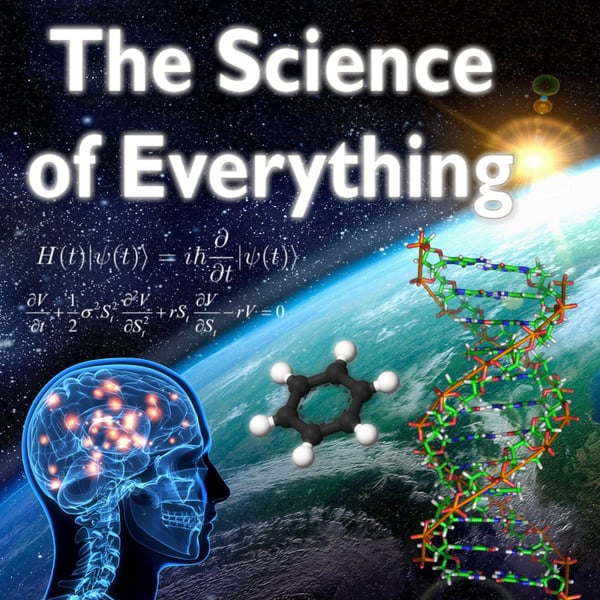Episode 7: Introspection Illusion
The Science of Everything Podcast
James Fodor
4.8 • 750 Ratings
🗓️ 7 November 2021
⏱️ 38 minutes
🧾️ Download transcript
Summary
Transcript
Click on a timestamp to play from that location
| 0:00.0 | Oh, wow, oh, oh, wow, oh, wow, oh, man. |
| 0:15.0 | Oh, yeah. Hello and welcome to the Science of Everything podcast. I'm your host, James Fodor. In this podcast, I discuss a wide variety of topics in the natural and social sciences, exploring the many fascinating scientific discoveries that can help us better understand the world around us. This is episode number seven, and the topic for today is the introspection illusion. Now, the introspection |
| 0:54.9 | illusion is something you may not have heard about before. It's a concept from psychology, |
| 1:00.2 | which is extremely important because it sheds some very interesting light upon how humans |
| 1:07.0 | think and how they behave. So in this episode, first I'll start out with defining |
| 1:12.0 | the introspection illusion and giving some examples of how it's manifest. And then I will move on |
| 1:17.2 | to examining a specific manifestation of the introspection illusion, which is referred to as |
| 1:23.8 | choice blindness. And I will give some examples of studies that have shown, that have demonstrated this. After looking at choice blindness, and I will give some examples of studies that have shown, |
| 1:28.7 | that have demonstrated this. |
| 1:30.5 | After looking at choice blindness, we'll move on to trying to explain some of the |
| 1:35.1 | hypothesized explanations for the illusion, for the introspection illusion, as to why we have it, |
| 1:40.9 | why it occurs. |
| 1:42.4 | And then I will conclude with some practical applications of the introspection illusion |
| 1:46.6 | in how we can understand certain aspects of life and certain things that happen in human society. |
| 1:53.4 | So, first of all, let's start with what is the introspection illusion? |
| 1:57.8 | Well, the introspection illusion effectively refers to the fact that, although people do not typically claim to be immune to such biases as wishful thinking, overconfidence, defensiveness, cloned, cloned, cloned,ness, etc., they do not typically recognize when they are actually succumbing to these biases in any particular |
| 2:19.1 | incident, in which they are succumbing to these biases. So what seems to happen is that people |
| 2:24.0 | look into their own minds to see if they are being biased about a particular decision or situation |
| 2:28.6 | that is occurring. They fail to find any evidence for such a bias, and hence they conclude |
| 2:33.2 | that they are being objective. |
| 2:39.6 | The interesting thing is that while we are not particularly comforted when we hear someone else say that they have looked into their own hearts and minds and concluded that they are being |
| 2:42.8 | objective, we consider that when we do this for ourselves, that is sufficient proof that we are |
... |
Please login to see the full transcript.
Disclaimer: The podcast and artwork embedded on this page are from James Fodor, and are the property of its owner and not affiliated with or endorsed by Tapesearch.
Generated transcripts are the property of James Fodor and are distributed freely under the Fair Use doctrine. Transcripts generated by Tapesearch are not guaranteed to be accurate.
Copyright © Tapesearch 2025.

